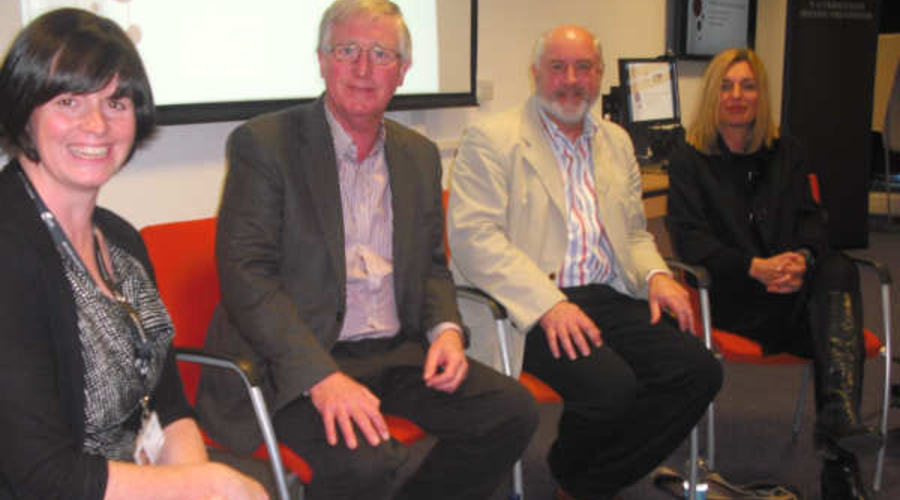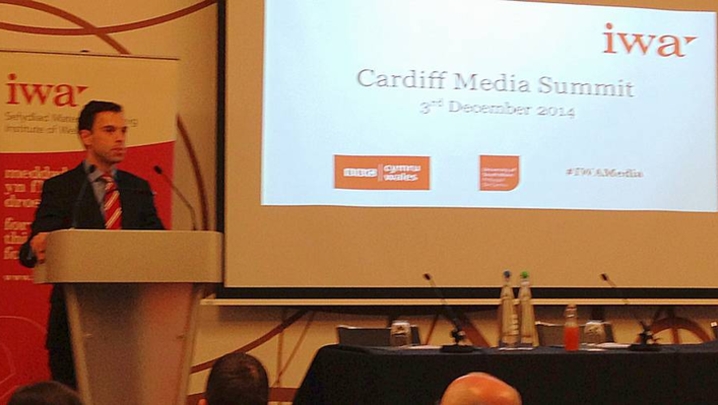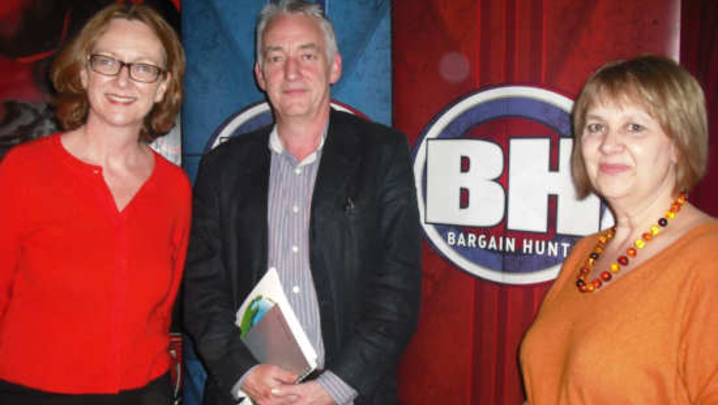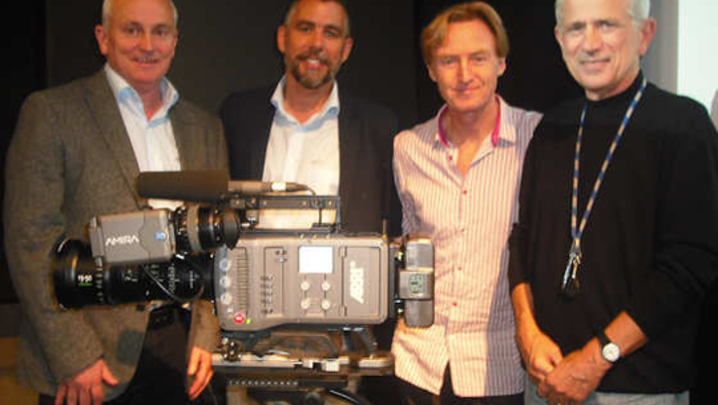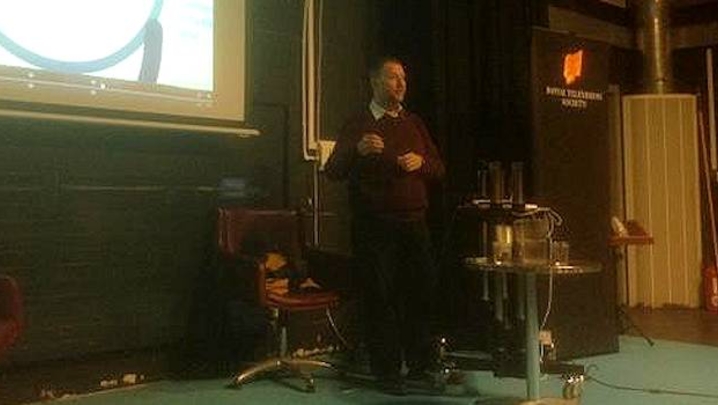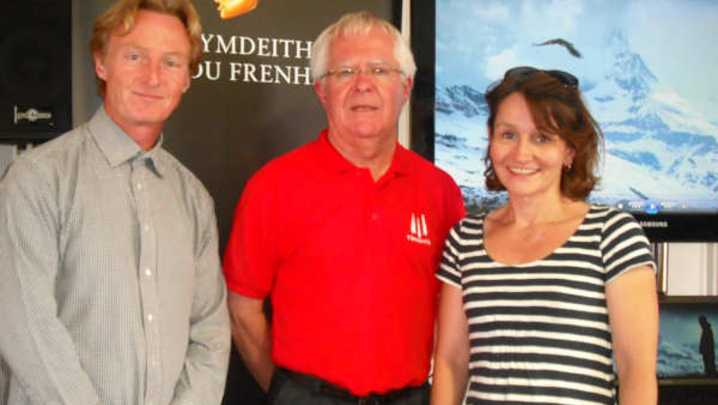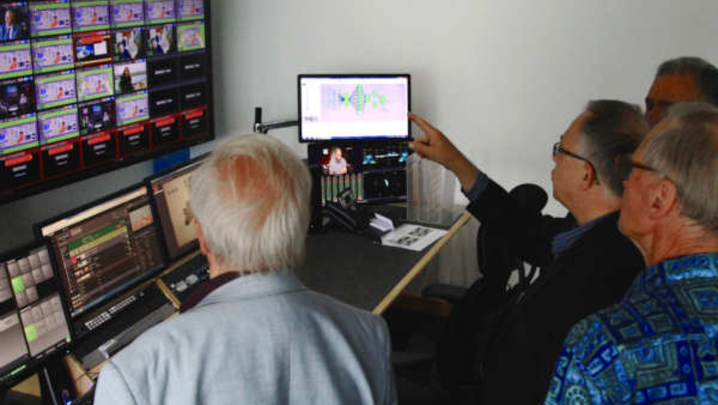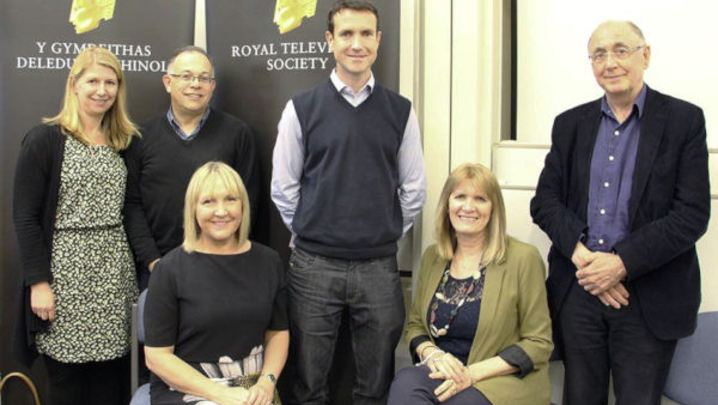RTS Wales Centre and Media Academy Wales
27th March, at the ATRiuM, Cardiff
Students, tutors and new entrants had a taste of working in documentary and factual media production at this event, chaired by Hannah Raybould of the Wales Media Academy, which included a Q&A and breakout sessions with the panellists, Phil George (Green Bay), Paul Islwyn Thomas (Bulb Films), and Samantha Rosie (BBC Cymru Wales) (pictured left to right above). Samantha started in corporate video, once working with Eamonn Holmes on a film promoting spark plugs, before eventually joining the BBC's Garden Festival Wales team as an assistant producer. But she was learning her craft as she went along, 'I was prepared to start at the bottom, but I was like sponge, taking it all in'.
Paul studied to be a musician but he 'got the bug' for factual programmes while studying at university. After graduating he worked as a runner for London OB company, Trillion, "I became brilliant at flower arranging and making Polish ham sandwiches". Offering to park the MD's Porsche every day got him noticed, and he was soon offered an Assistant Editor's post. But it was the film he made while at college about the Miners' Strike which became his calling card.
Phil worked in education, entering the industry in his mid 30s. He noted that, "there are fewer opportunities to make short form pieces on television today, ... slots and programmes are precisely analysed through market research and focus groups by commissioners who know their audience", a trend he argued, parodied in the fictional series, 'Britain's Tastiest Village', featured in the current BBC comedy spoof, W1A.
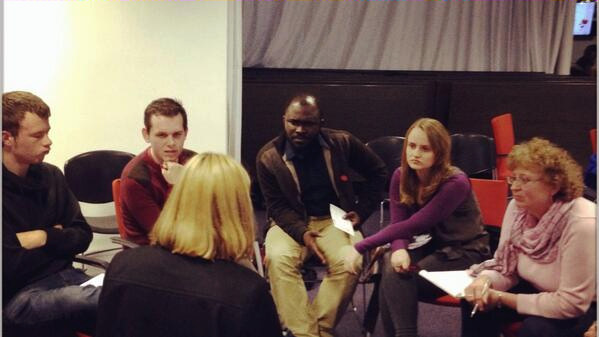
(Picture from Media Academy Wales)
Samantha (above, in a Q&A session with students) explained that working in mainstream factual requires team work and trust, qualities which might be at odds with the 'lone authored voice' encouraged by university documentary courses. Paul advised that, 'having specialist knowledge is valuable, particularly as much high end production today covers science, the arts, history and archaeology'. But he warned that research needs to be rigorous, particularly with the high standards of due diligence required in controversial programmes, 'it's far more than just scanning Wiki on line'. The panel also gave advice on CVs, pitching ideas and taster videos with Phil concluding that 'it's worth getting out more - don't just spend time in front of a computer - try and gain a sense of social reality'.

